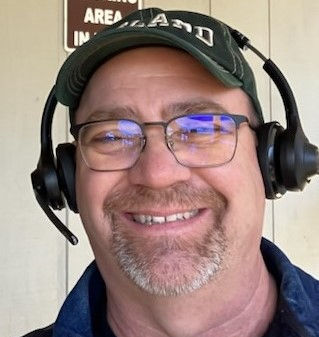Nice to Meet You: Connie Treat
- NEIA Red Cross

- Oct 26, 2021
- 3 min read
For several decades, Connie Treat has been an American Red Cross collection specialist, comforting blood donors and helping to regularly save lives by collecting blood products. She answered our questions about her position and working for the Red Cross.
Q: What does a collections specialist do? A: A collection specialist is trained staff to interview potential donors for a blood donation. If the donor is eligible then they will take the donor to our donor bed. This is where they look and palpate the vein. When they find a suitable vein, they will connect a donor identification number (DIN). They scrub the antecubital area with a Chlora prep. They gently scrub a 2 1/2 x 2 1/2 inch area for thirty seconds. The specialist is trained in this procedure. They insert the needle in the donor's vein, and it takes from 4-20 minutes to fill the blood pack unit. The unit is on a scale that rocks back and forth. The scale alarms if the unit is at the correct weight or it alarms if the blood flow slows down. Staff are trained for 30 days, and this is a new training system.

Q: Why is it important for people to donate blood? A: If people do not donate blood, then we could lose lives. For some diseases, receiving blood products is the only way the patients can live.
Q: How long have you been with the Red Cross? A: I have worked at the red cross for 30 years.
Q: What do you like most about your job?
A: Every day is different. I work with different groups of staff and visit different communities. The hours are different every day too. I travel a lot. I travel to Eastern Nebraska, Northern Kansas and Western Iowa. This is a part of my job that I love. The traveling, different hours and the challenges of daily operations to make things work. The bottom line is I love my job. It has been so rewarding over the years.
Q: What advice do you have for first-time blood donors? A: I have calmed many first-time donor fears over the years. With a first-time donor, I make sure I explain what I am doing. For the best experience, donors should increase fluids two days before donating and two days after donating. Also, make sure you eat a good meal before you donate!
Q: What do you do when you aren't working?
A: I enjoy outdoor activities in the summer. We like boating. I also love cats. I have a multi-poo named Ollie and a Maine Coon named Mosley. They do get along.
Q: What has most surprised you while working with the Red Cross?
A: One moment that I remember took place at a bloodmobile. I was going to draw a donor. He had a huge vein that would work great. He was telling me that only once did a phlebotomist miss his vein. I told him I was experienced and had been at the Red Cross a long time. I ended up having to adjust the needle in his vein and which caused a big bruise and forced me to pull the needle. I felt so bad. I told him I would never forget this moment. Now when a donor asks about my experience, I tell them that I do my best. This is a humbling job.
Q: What is a Red Cross moment that has stuck with you?
A: The one thing I am most proud of is that I performed my daughter's first phlebotomy when she was in high school. Then I performed my granddaughters' first phlebotomies at their high schools. They all are regular donors now. My oldest granddaughter volunteered during her high school years and my youngest has been the coordinator of her high school summer drive.

Pictured from right to left: Connie, her granddaughter, Michaela and her daughter Michelle. This was Michaela's first blood drive.
Q: What do you wish people knew about working with the Red Cross?
A: I've become close to many people at the Red Cross. We have overnights, eat together and ride in vans together (prior to Covid). It is not the usual 9-5 job. This is a regulated job, but I have fun.
If you like to travel, like to work different hours and most of the time be off by 9:00 pm and enjoy working with a variety of people, this is the job for you. This job always changes too. Procedures change and equipment gets updated, so we are always learning. It never gets boring. I am proud to tell people that I work for the American Red Cross.
The American Red Cross is currently looking for collections specialists. You can explore your career options here. Also, don't forget to make an appointment to give blood this fall.












Comments